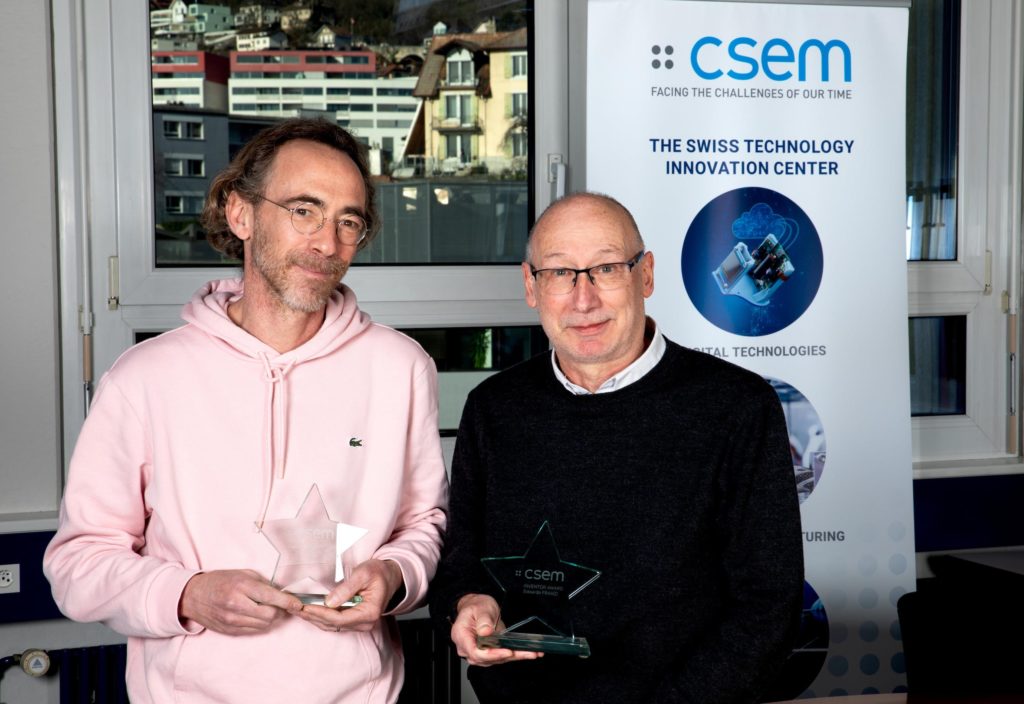
Miniature atomic watches developed by the CSEM will soon hit the market
12 July 2022

The EU-funded macQsimal project, coordinated by the CSEM, led to the creation of a miniature atomic watch that runs on very little power.
A part of the EU’s FET Flagship on Quantum Technologies program, the macQsimal project was launched in 2018 to explore how quantum properties can be used to develop sensors with unprecedented precision and sensitivity, and to help establish a high-performance European industry in this field. The project’s closing ceremony was held at the University of Neuchâtel (UniNE), a key project consortium member.
The first quantum revolution led to the transistors and lasers that form the basis of computers, smartphones and internet connections. Today, a second revolution is on the way thanks to advanced methods for manipulating the fundamental quantum properties of systems and materials. Engineers worldwide are racing to get a handle on these new methods in order to develop breakthrough technology in fields like healthcare, security, transportation, energy and environmental science.
macQsimal was carried out by a consortium of 14 partner organizations spanning the entire technology value chain, from fundamental research to industrial applications. Consortium members worked together to design next-generation, highly effective sensors based on atomic vapor cells, with a view to making the benefits of this technology available to the general public.
Maintaining Neuchâtel’s leadership position in the precision industry
The Swiss consortium members began transferring the technology developed under macQsimal to industry by creating a miniature atomic watch that runs on very little power. Most of the development work for the watch took place in Neuchâtel, from designing the watch’s core – consisting of MEMS cells developed by CSEM – and electronic control system to assembling the final product. Fribourg-based Orolia Switzerland will market the watch in what’s shaping up to be a fast-growing industry with expanding demand for atomic watches.
“We began studying miniaturized atomic watches about 15 years ago, and now our work is leading to new products being marketed in our region,” say Christoph Affolderbach and Gaetano Mileti, senior scientist and Professor at UniNE’s Time-Frequency Laboratory (LTF). “We intend to continue our research in order to maintain Neuchâtel’s leadership position in this industry, which is a strategic one for Switzerland.”

